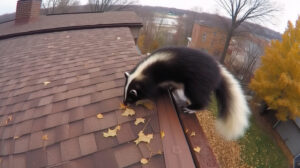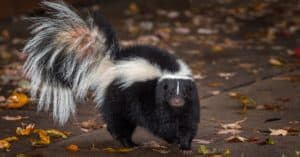Skunks are well-known for their potent smell, but these shy creatures are mostly nocturnal and prefer a quiet, peaceful life. They are beneficial bug-eaters that feast on grubs, beetles, and insects, which can help keep your garden pest-free. However, skunks are also skilled diggers and may occasionally enjoy snacking on your plants. Fortunately, there are plants skunks dislike, and even some that repel them from your garden. Let’s look at eight plants that repel and keep skunks away!
1. Summer Squash Plants
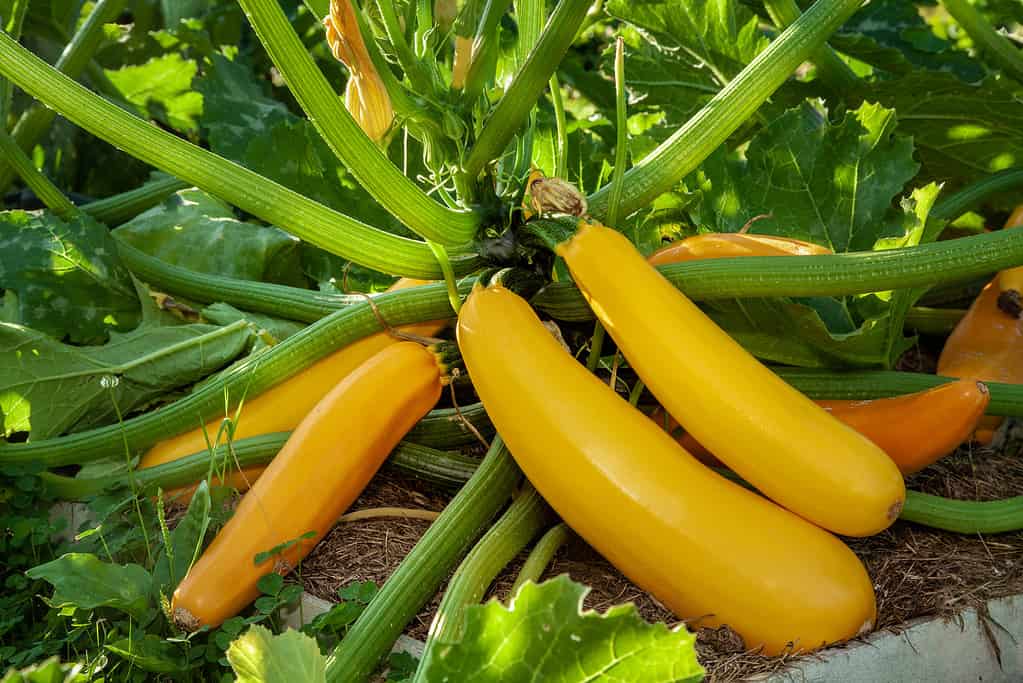
Planting summer squash as a border creates a less inviting welcome mat for these stinky visitors.
©Zhukovskaya Elena/Shutterstock.com
One way to try to repel and keep skunks away from your yard or garden is by planting summer squash. The leaves of these plants have tiny, prickly hairs that irritate a skunk’s sensitive feet. Some summer squash varieties even have sprawling vines that fill in the gaps like ground cover, making it hard for skunks to dig in the soil for insects and grubs. However, be sure to harvest your squash regularly. If your summer squash gets old and rot on the vine, it will attract the skunks instead of repelling them.
2. Crown Imperial Flowers
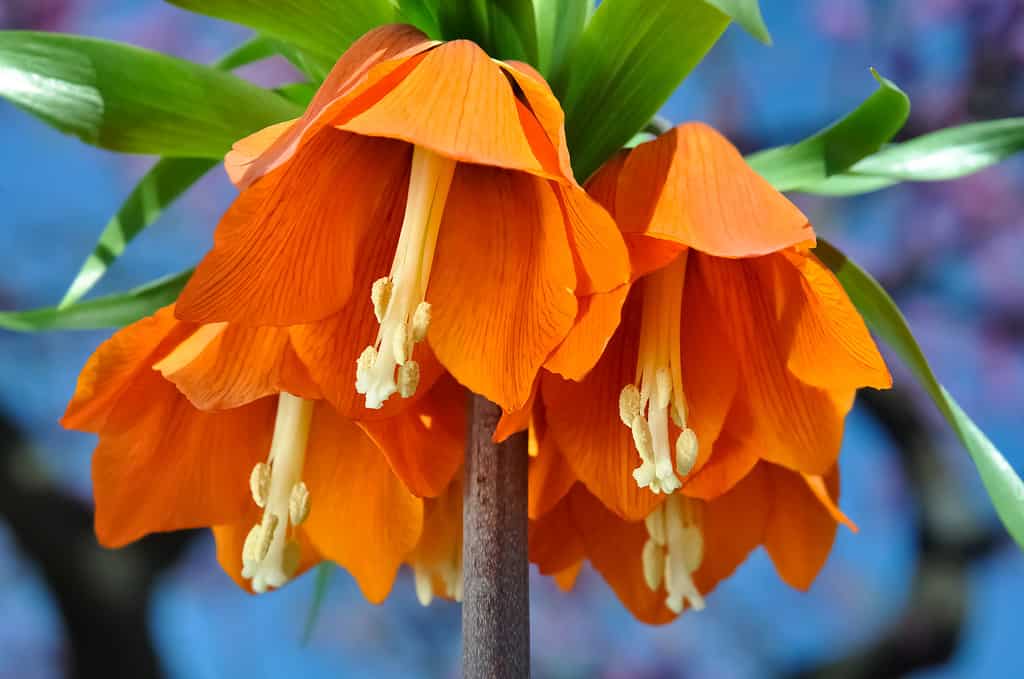
Both the bulbs and the flowers of crown imperial plants can keep skunks away.
©ON-Photography Germany/Shutterstock.com
Although beautiful, crown imperial flowers have an unusually musky scent that many people — and skunks — dislike. Skunks have super sensitive noses and rely on smell to find food. The overpowering odor of crown imperial flowers throws them off and makes it difficult for them to navigate. However, there are many varieties of crown imperial flowers, and some are smellier than others. Rubra Maxima, for example, has a very strong, musky scent, while Brahms flowers don’t have any scent at all.
3. Stinging Nettle
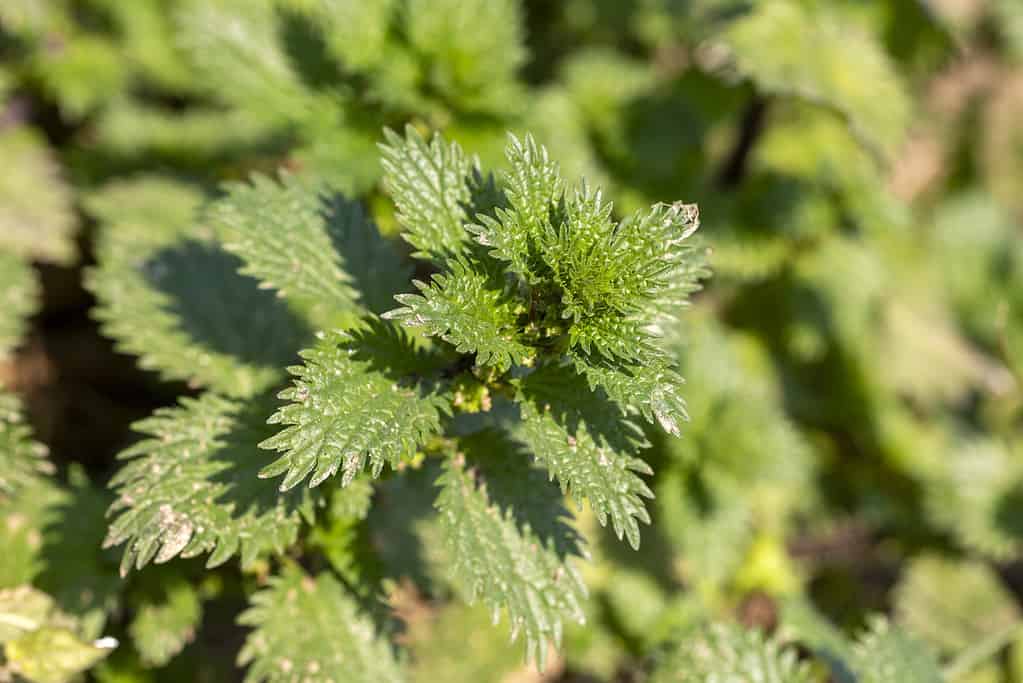
Always wear gloves and long sleeves when handling stinging nettles.
©Esin Deniz/iStock via Getty Images
This may not be the first plant that comes to mind when planning a garden, but it can serve as a great guardian against skunks. Stinging nettles have tiny barbed hairs that really pack a punch! When brushed against, they release histamine that causes itching, burning, and even blisters. Skunks have very sensitive paws and do their best to steer clear of stinging plants. In addition, stinging nettles grow in thick clumps and can form an effective natural barrier around your garden to keep skunks out. However, remember that stinging nettles can hurt humans too, so be sure to plant them away from areas where children or pets play.
4. Citrus Trees
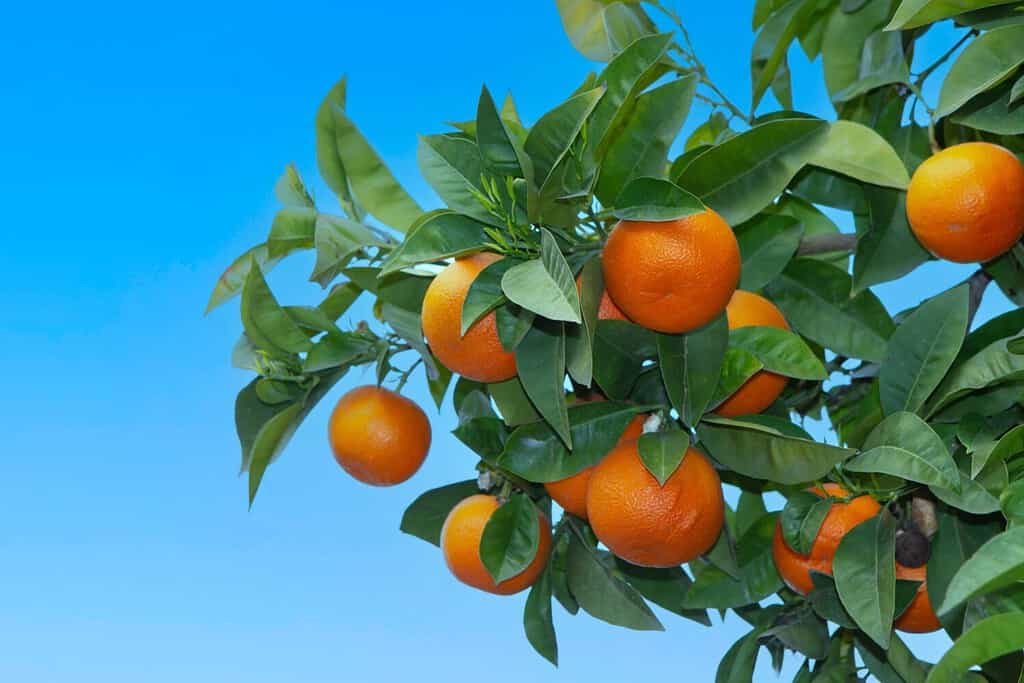
Citrus trees repel skunks and produce delicious fruit!
©Thanasis F/Shutterstock.com
Not only are they nice to look at, but citrus trees are another helpful way to repel and keep skunks away! While many humans enjoy their refreshing aromas, skunks find citrusy smells stinky and unpleasant. In addition, citrus trees are a great, long-term investment as they continue to grow each year and produce more fruit.
5. Thorny Bushes
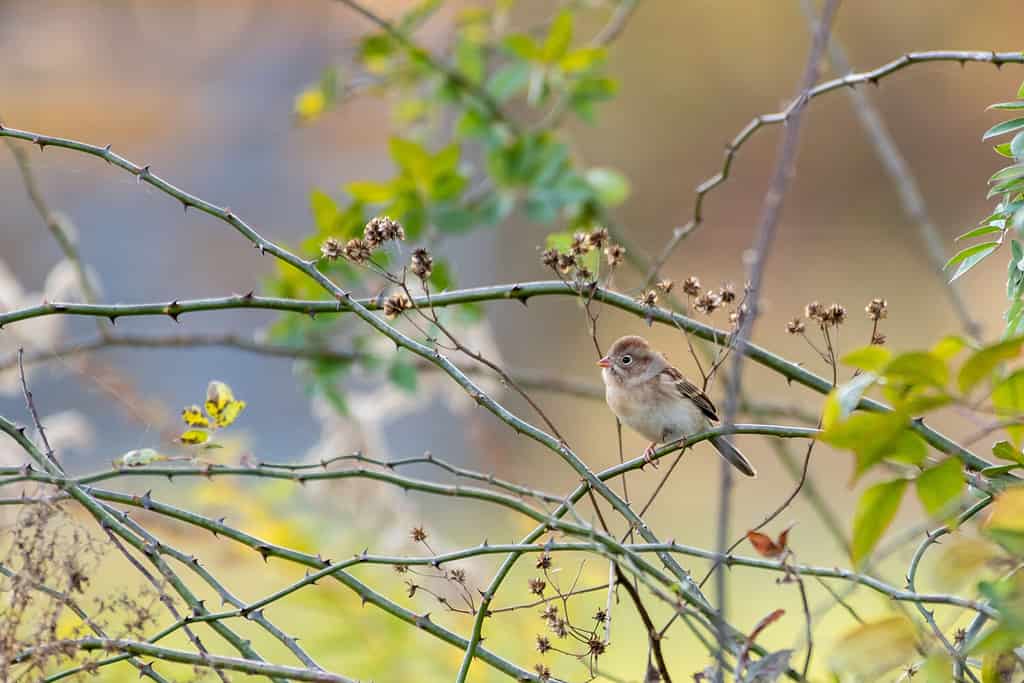
Denser bushes can help to discourage skunks and keep your garden safe.
©rylansamazingphotography/Shutterstock.com
Planting thorny bushes around your garden is another option to repel and keep skunks away. Skunks have sensitive feet and legs and don’t enjoy squeezing through a prickly maze. In addition, thorny bushes also make it harder for skunks to dig for grubs and insects in the soil. However, just keep in mind that a very determined skunk may still try to wiggle through, especially if there is an extra tasty snack waiting for them on the other side.
6. Daffodils
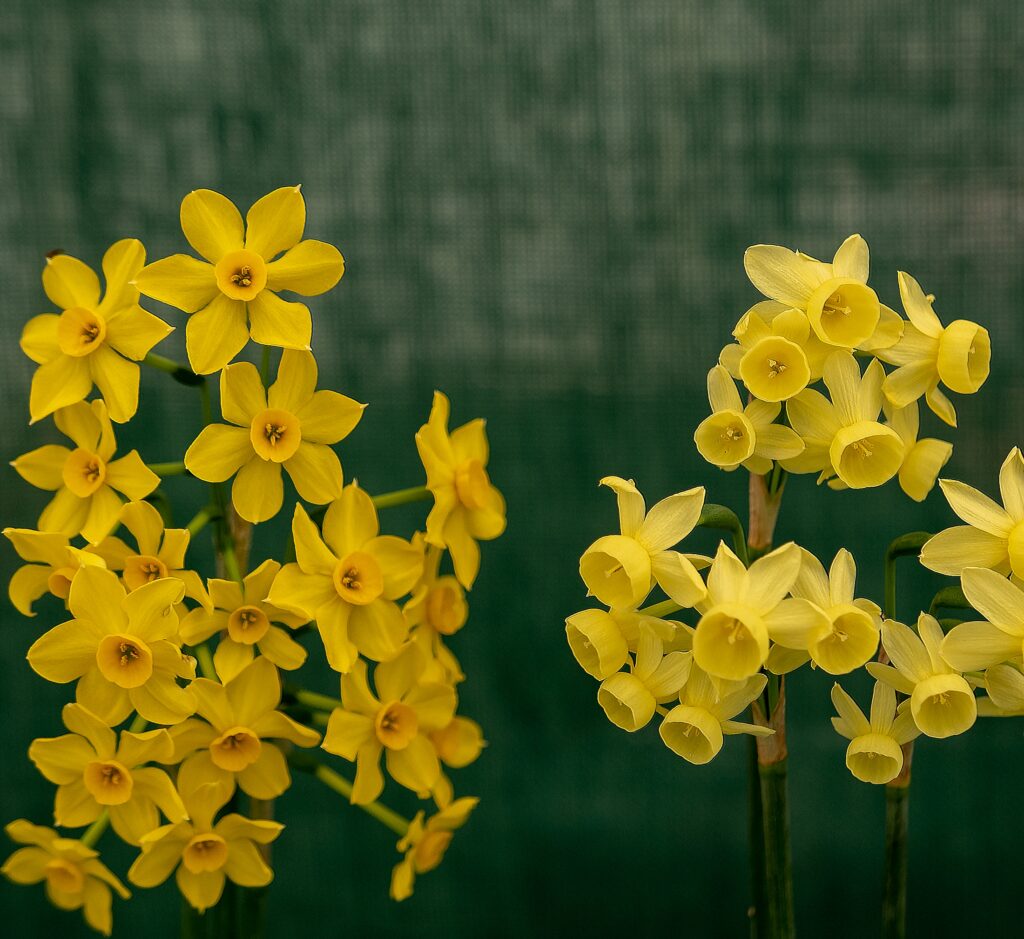
Daffodils can take a few years to fully establish.
©Joe Kuis/Shutterstock.com
One of the first flowers to bloom in the spring is daffodils, which are actually mildly toxic to skunks. If a skunk eats any part of these cheerful plants (bulbs, flowers, or leaves), they’ll get a pretty bad stomachache, which will cause them to steer clear of them in the future. In addition, daffodils are early bloomers and will be ready for hungry skunks just waking up from hibernation. However, you’ll want to plant them in large clumps for more efficacy.
7. Holly
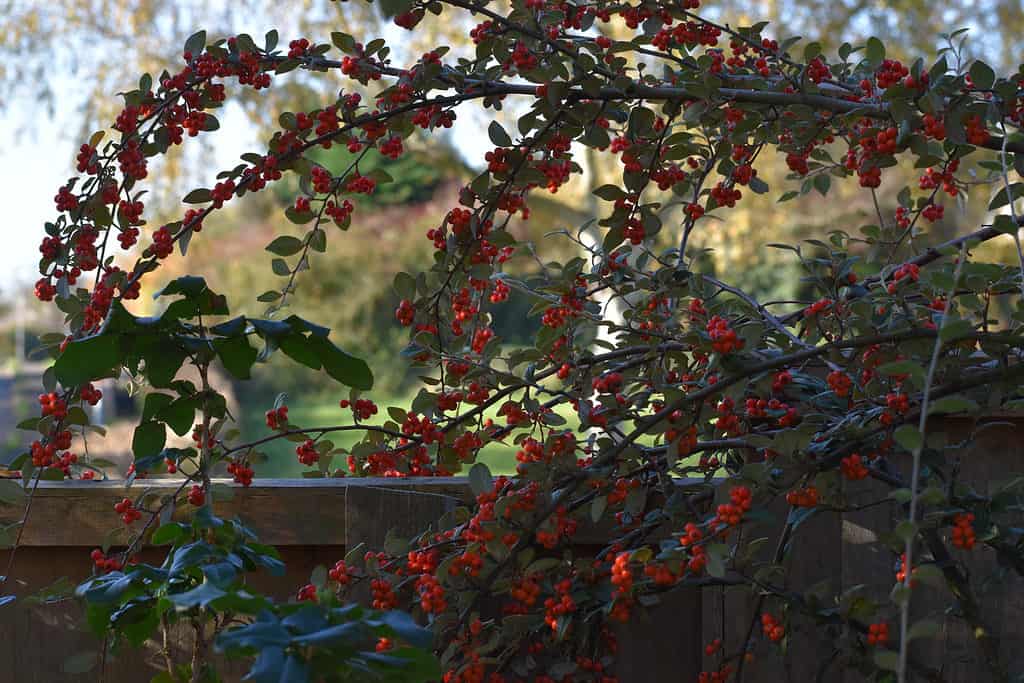
Once established, holly bushes are fairly easy to care for.
©Janemf1/Shutterstock.com
Another prickly plant that can help to protect your garden from skunks is holly. Holly bushes have spikey leaves that are painful to navigate, especially for skunks and their sensitive paws. They also tend to grow thick and bushy, creating a formidable barrier that discourages skunks from squeezing through. In addition, they also make it much harder for skunks to dig for grubs.
8. Oregon Grapes
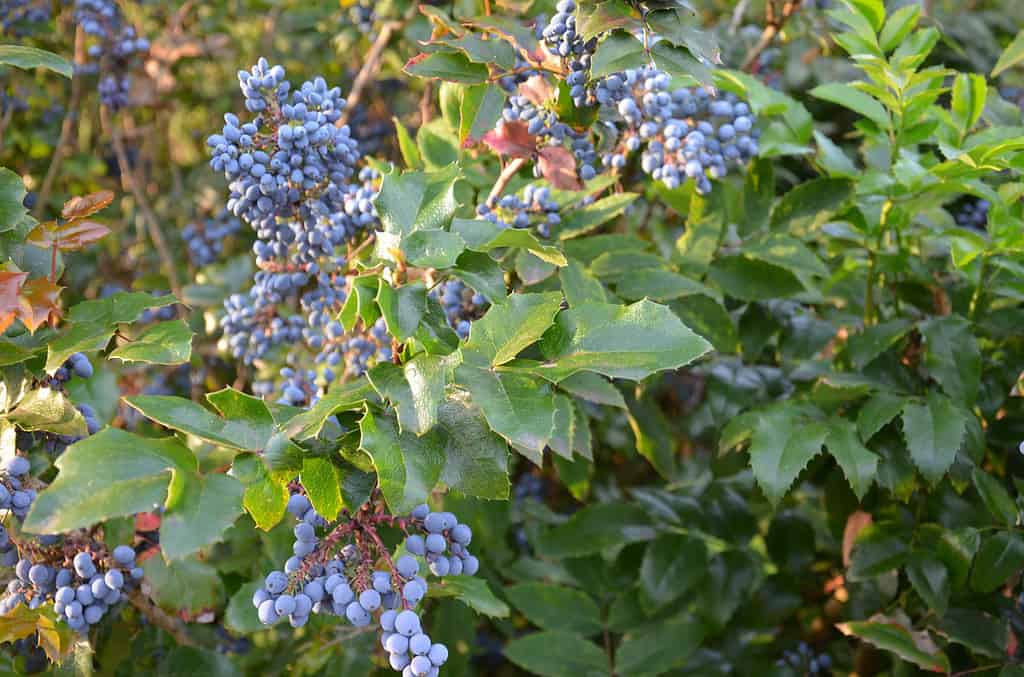
Oregon grapes produce bright yellow flowers and small, purplish berries.
©Wirestock/ via Getty Images
The leaves of Oregon grapes are a lot like holly bushes. Their spikey edges create a dense, mounded barrier that skunks prefer not to navigate. Plus, Oregon grapes grow easily and add color to your garden all year long. Their leaves change from green to stunning shades of red or burgundy.
Other Ways to Repel Skunks
1. Solar and Motion-Sensor Lights
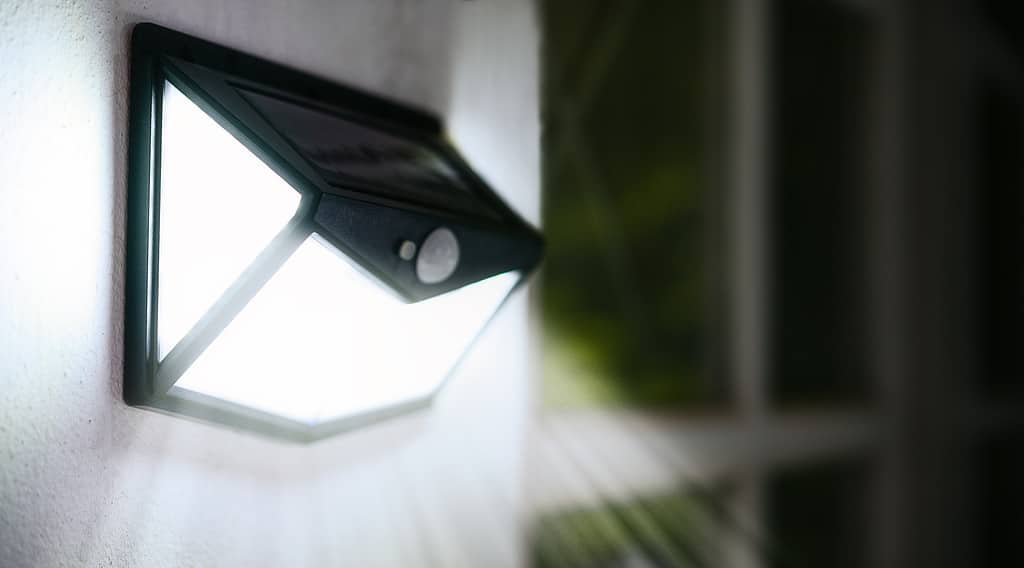
Skunks have poor vision and are very sensitive to light.
©CASEZY/iStock via Getty Images
Light is one of the best ways to repel and keep skunks away! Skunks are nocturnal (they sleep during the day and forage at night) and have super sensitive eyes, so a bit of light can go a long way. Solar lights are handy as they soak up the sun during the day and then automatically turn on at night. Motion-sensor lights are another good option. The sudden appearance of a bright light startles skunks and sends them on their way.
2. Citrus Scents
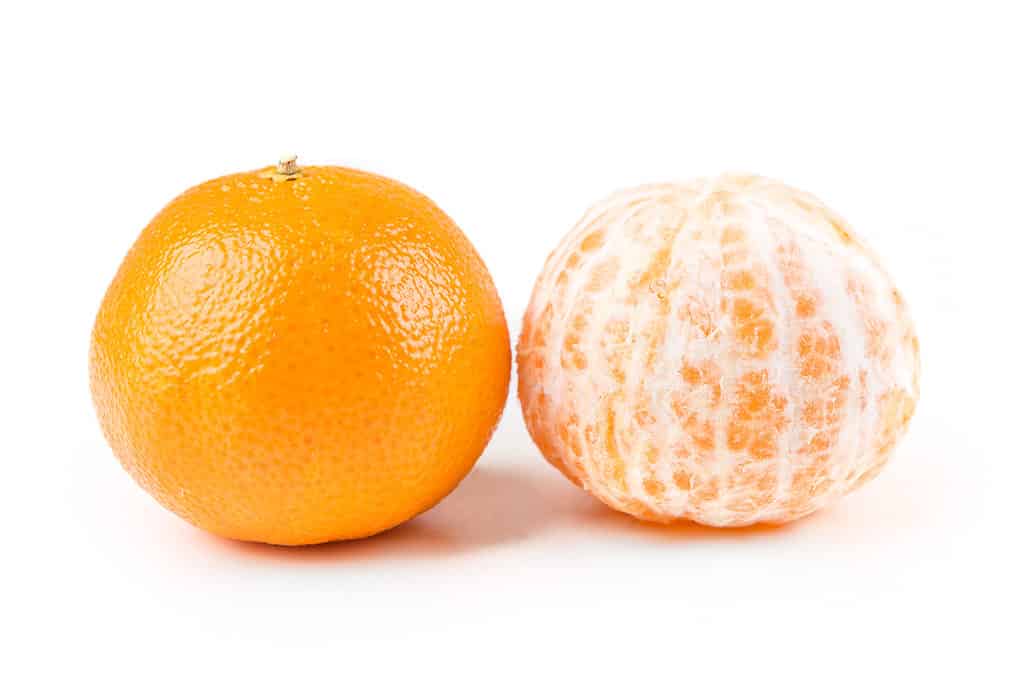
Citrus peels are a cheap and easy way to repel skunks.
©Elizabeth A. Cummings/Shutterstock.com
As previously mentioned, skunks are not fans of citrus — so, scatter leftover lemon or orange peels around your garden! Their strong citrusy scents give skunks the message that your yard is not a welcoming place for them.
3. Soap
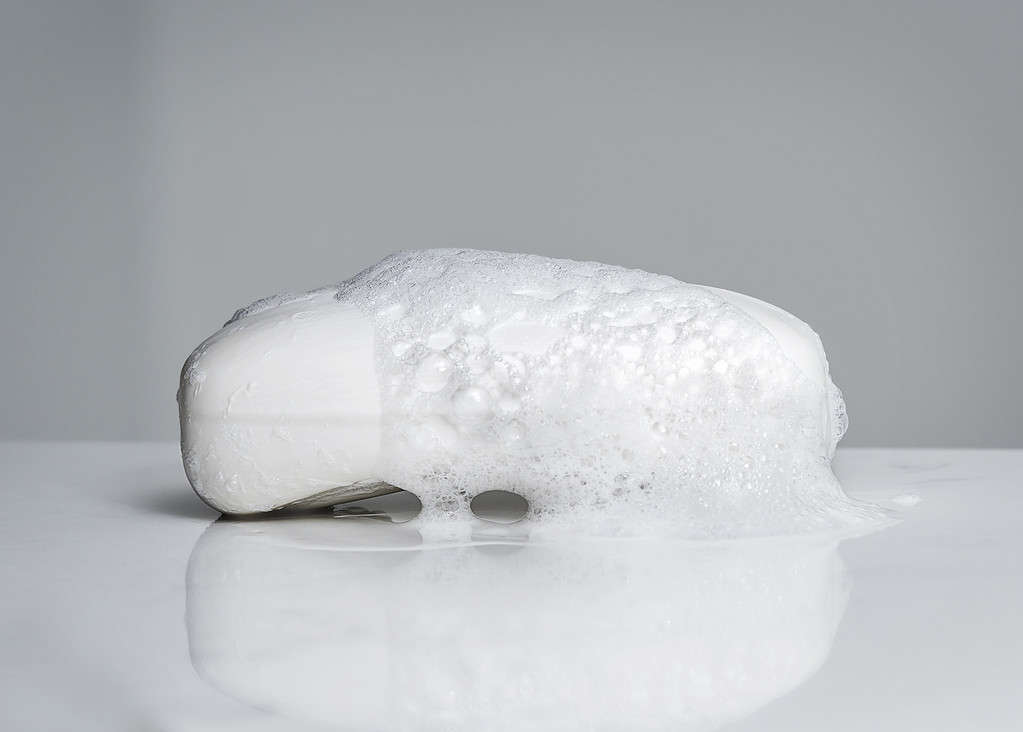
Soap can be a good deterrent for skunks, but make sure it has a strong scent.
©ScottyCo/iStock via Getty Images
Citrus isn’t the only odor that skunks dislike. Their super-sensitive noses are also bothered by the strong odors of soap or room deodorizers. A bar of strong-smelling soap near your garden beds can be a great skunk deterrent. In addition, you can also mix and dilute dishwashing detergent and castor oil with water and spray it in areas frequented by skunks. However, spray with caution: this can be harmful for some plants, so test a small area first.
4. Fencing
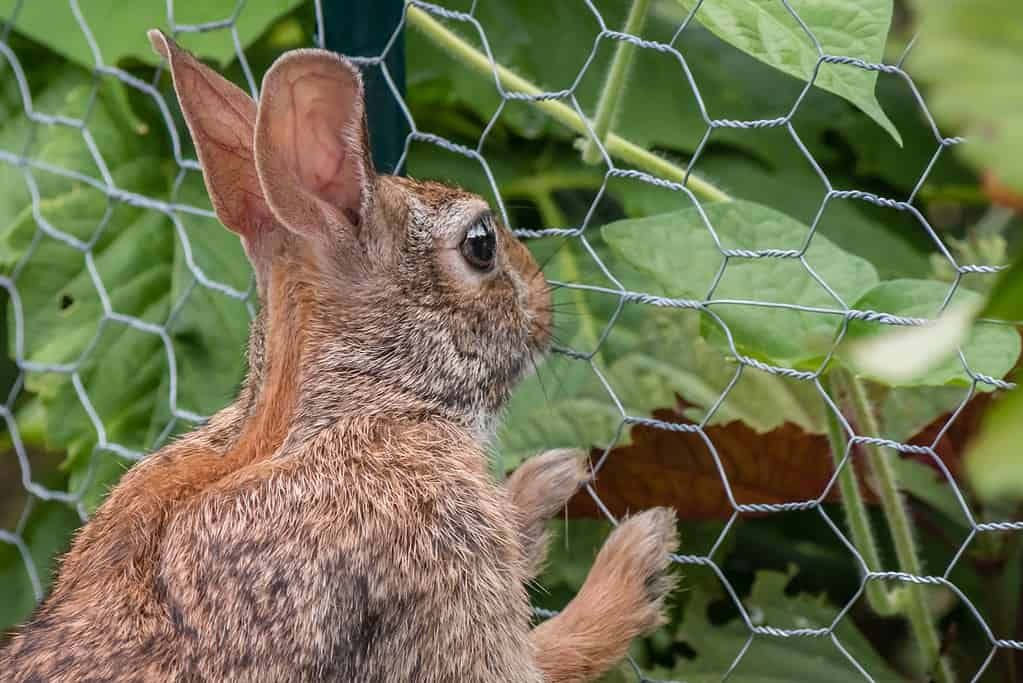
Fencing can help protect your garden from many different types of pests.
©Jay Gao/Shutterstock.com
A fence can be a simple but effective way to protect your garden from unwanted visitors like skunks. It creates a clear, physical barrier between the skunks and your delicious garden. To get to the other side, the skunks will have to do more work, which makes it much less likely for them to keep trying. In addition, a fence that extends underground adds an extra layer of protection, stopping skunks from digging in the soil.
5. Predator Urine
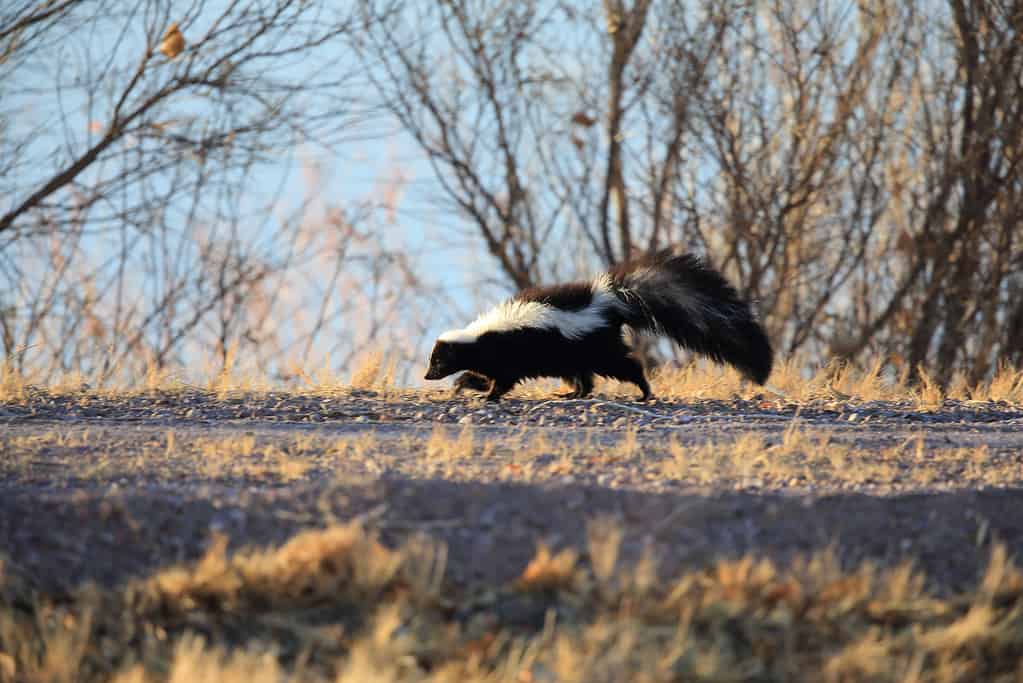
Skunks have an excellent sense of smell and hearing.
©Frank Fichtmüller/iStock via Getty Images
Skunks are shy creatures and wary of predators, but you can use this to your advantage. Predator urine repellent (often made from coyote or dog urine), mimics the scent of a large predator, scaring away skunks and other garden pests. Most garden centers carry this type of repellent, but be sure to choose a responsibly sourced protect. Look for brands that source their ingredients ethically and follow all the regulations.
The photo featured at the top of this post is © Geoffrey Kuchera/Shutterstock.com
Thank you for reading! Have some feedback for us? Contact the AZ Animals editorial team.



